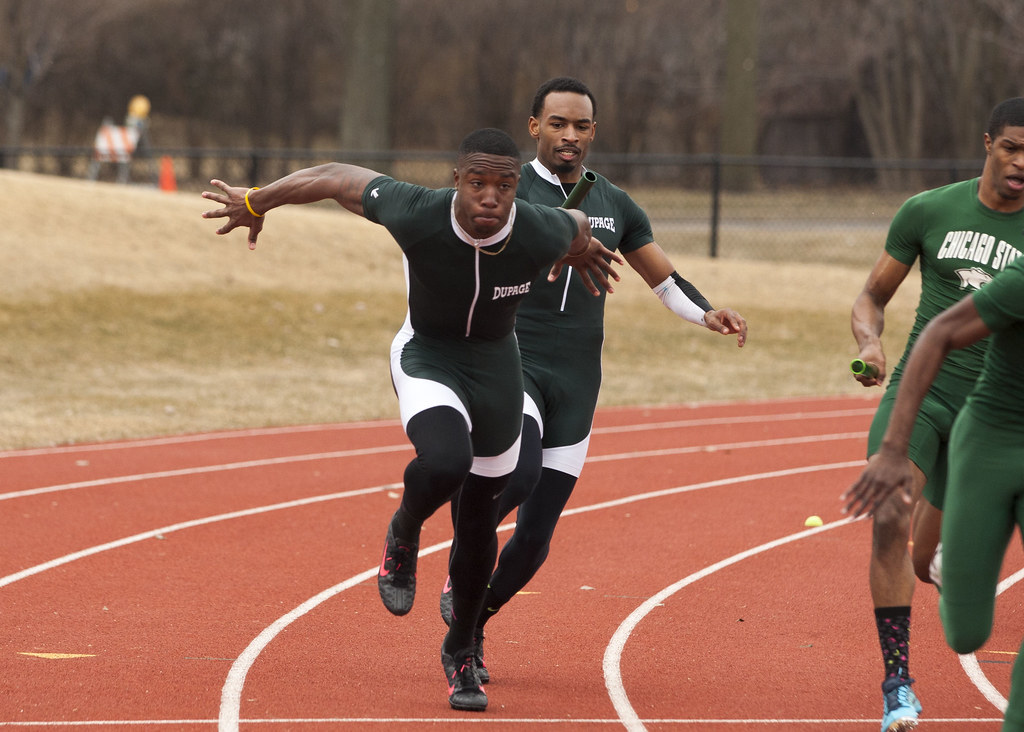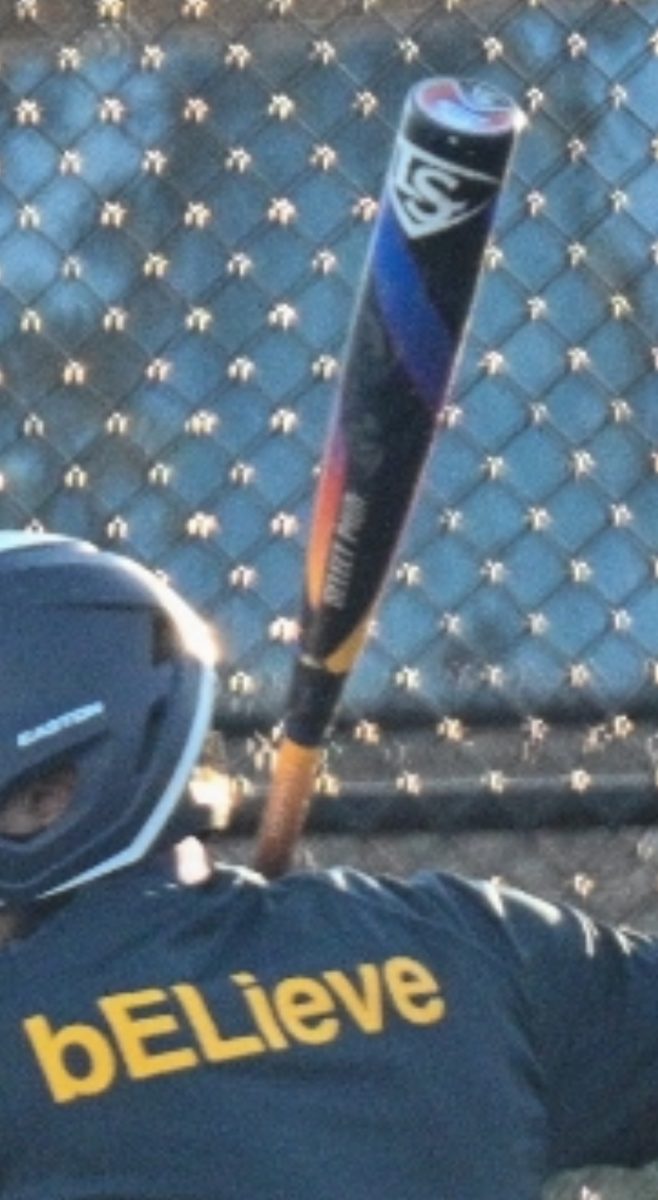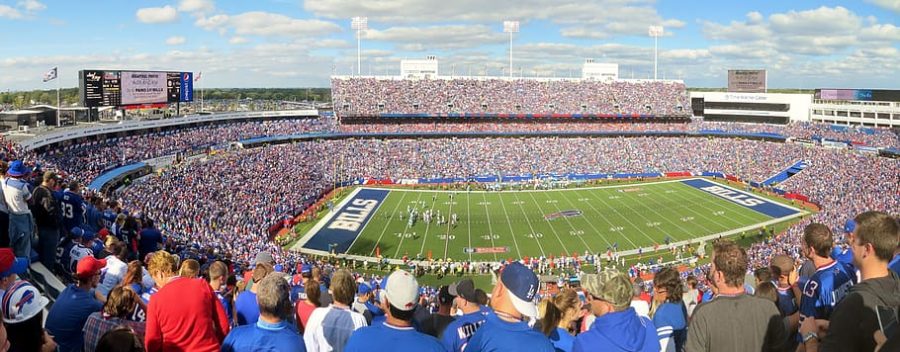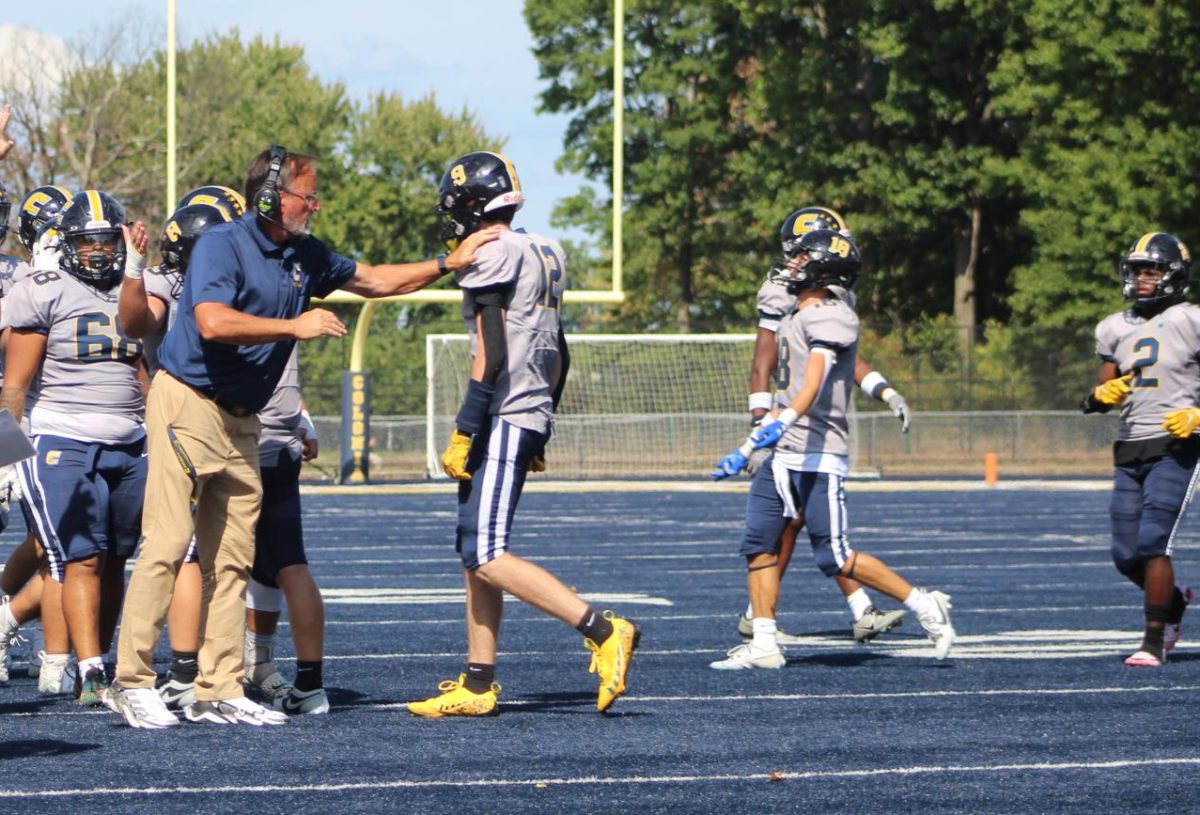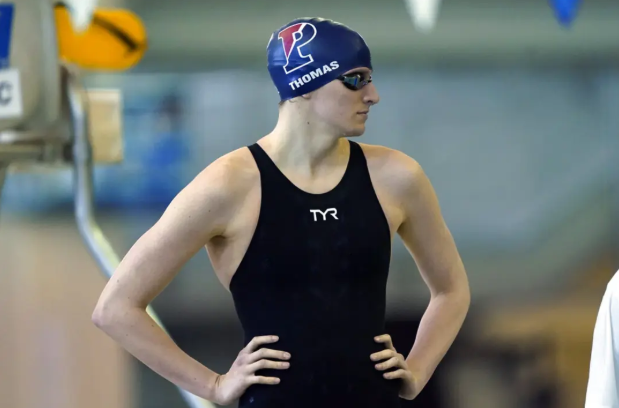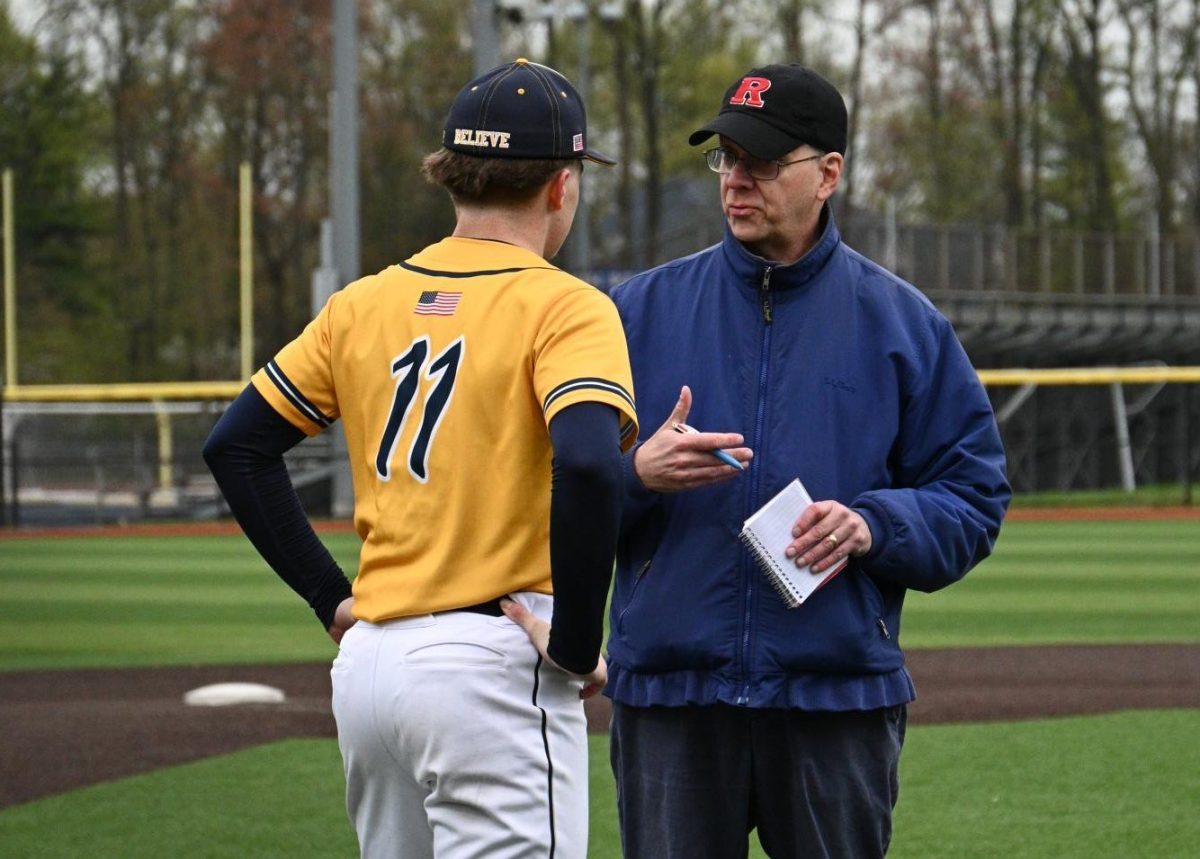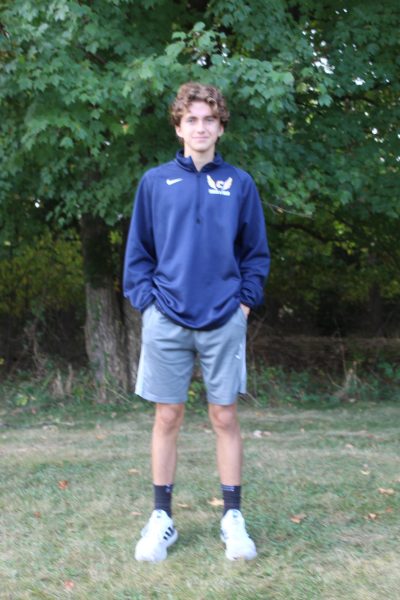Throughout high school, many student-athletes all across the world go through the process of how to get recruited to college athletics.
Whether it is Division I, Division II or Division III athletics, thousands of athletes are recruited to play in the National Collegiate Athletic Association(NCAA) each year. Every year, billions of dollars in athletic scholarships are provided to Division I and Division II athletes. The National Association of Intercollegiate Athletics(NAIA) also drives in a solid amount of interest from post secondary student athletes with their average scholarship being around $7,000.
There are more than 500,000 slots available throughout the nation. Those who are highly successful in high school athletics have a high chance of participating in their sport in college as well as having the benefit of a reduced tuition. The biggest question among high school athletes who are looking to participate in college athletics is how to get recruited.
NCAA Eligibility Center
It is important to always account for the “student” part of student-athlete. Any athlete who desires to play in college has to start by registering for an account in the NCAA Eligibility Center, which looks mainly at your academic ability. It is critical to note that registering for this organization doesn’t help your athletic recruitment process. It’s main purpose is to take note of your academic eligibility. How you get recruited to college athletics starts with the academic side.
As far as when to register, there are two different possibilities. You can do it if you are a junior who is confident that you want to participate in a sport in college or if a coach is recruiting you personally and asks you to register. The earliest you can register is your freshman year of high school and ideally the latest you will register is the end of your junior year.
It costs $90 for students of the United States and $150 for students from other countries to register.
Before registering, you need to have a valid email address, a current high school transcript and your athletic history. It will likely take 30-45 minutes to create an account.
Step by Step process of creating an account
- Go to the Eligibility Center Website
- Select “Create an account”
- Enter the verification code you receive through email and complete the contact info
- Pay the fee
- Enter basic school information
- When you get to the sports page, answer questions regarding what sport you plan to play
- At the end of your junior year, ask your counselor to send your current transcript to the eligibility center.
- After graduation, have your counselor send your official transcript.
Getting recruited
If you are a standout player at a big high school, coaches will likely find you themselves. Those with smaller programs will have to do more to earn the attention of college coaches. No matter what school you are at or how elite you are as an athlete, the athlete and the coach will have to follow some basic rules on how to get recruited.
Basic Recruitment Rules(Division I/Division II)
- Most sports but not all, don’t allow coaches to communicate with you until after your sophomore year. In other sports coaches can’t communicate until the fall of junior year. If that isn’t enough to confuse athletes, almost every collegiate sport operates on a different recruitment calendar. Athletes should look for their sport’s specific calendar on ncaa.org
- There are contact periods, evaluation periods, quiet periods and dead periods included on each calendar. Contact periods are when coaches can make an in person visit with the recruit or meet them off campus. Evaluation periods are when coaches can make off-campus evaluations of the recruit but can’t contact them. Quiet periods are when you can only meet on-campus. The dead periods are when the recruit and coach can’t contact each other in any way.
How to grab a coach’s attention
- Talk to your high school coach about what collegiate level they think you should aim to compete at. Your coach may be able to contact certain college coaches to get you started in the recruitment process.
- Do your own research and find colleges that give you the opportunity to play a sport and offer your desired major. After you find colleges that interest you, begin contacting the coaches. Jack McKiernan, the Senior Associate Athletic Director of Internal Operations at Wagner College says that “The best way to reach college coaches is through email or filling out a recruiting form on the school’s page. Coaches like to see film on you. “
- Create profiles on different recruiting websites like Torch College Recruiting, MaxPreps, Hudl or Streamline Athletes. This will allow you to post any highlights you have had throughout high school and keep colleges up to date on your progress.
- Play at as high a level in the sport as you can to have the highest chance at attracting the most attention. If you can play on an elite travel team that can make national tournaments, coaches will often be there to scout players. This will also expose you to playing against higher level players.
- You should also consider attending any camps hosted by college coaches. This will allow you to leave a lasting impression with coaches at colleges that you will consider going to after high school.
After visiting a college and meeting a coach, the coach will likely want to get to know you as an individual. This will likely happen through a phone call or an in person meeting. They may ask what other colleges you are looking at and where you are in the recruiting process with them. They will also be curious about when you are willing to commit by if they were to make you an offer. You should also prepare to ask the coach questions yourself. Ask questions such as “what does a typical week of practice look like for your team?” and “What kind of role do you see me playing on this team?”
Jack McKiernan, Senior Associate Athletic Director For Internal Operations at Wagner College, recommends asking coaches about how they deal with athletic development and how your major balances with your sport. “You want to get as much information about the college out of the phone call as you can, so asking questions regarding your major and how that balances with your respective sport or how the coach goes about developing their athletes will achieve that goal.”
If you sign a Nation Letter of Intent(NLI), there is no other school that can recruit you. Therefore, you need to be absolutely certain that the school you signed an NLI with is definitely your top choice and the school you want to attend for the next 4 or so years. McKiernan explained his philosophy in choosing the right school. “It all comes down to fit and feel, some want the bigger college experience but ultimately you want to go somewhere you fit in academically and then the athletic side is the cherry on top.” NLI guarantees financial aid for your participation in athletics.
The process is less intense if you look to involve yourself with an NAIA program or Division III program. It involves most of the same requirements like posting highlights, contacting coaches and talking to your own coach. The main difference is that Division III and NAIA schools are more flexible with their rules
Recruitment Rules for Division III
- After junior year, a coach and athlete can have unlimited contact
- Before junior year, the coach can reach out through an email or phone call
- Athletes can make as many unofficial visits as they please
Recruitment Rules for NAIA
- The athlete must register in the NAIA Eligibility Center. The registration process is very similar to registering in the NCAA Eligibility Center
- Like Division III, coaches can contact athletes at any time
- There aren’t any dead periods or quiet periods and the process is significantly more lenient
NAIA athletes do receive scholarships, just not to the extent that Division I athletes do. Division III athletes don’t get scholarships but most of them receive financial aid in some sort of way
Final takeaways
Now that you have seen how to get recruited to college athletics, here are some final takeaways from the article.
-With so many athletes competing in college each year, those who achieve a high level of success in high school have a very real chance at going to college
-Take care of the student side of student-athlete first because the NCAA Eligibility Center has to clear you before you even have the chance to participate,
-Athletes can grab a coach’s attention in many ways in spite of the rules the coaches have to follow.
-Decide the experience you want to have with college sports. Division III and NAIA sports don’t involve the same commitment as Division I schools.
-Think about your ultimate goal with athletics and how far you want to go with it. Once you decide, make sure your college choice is in line with that goal



